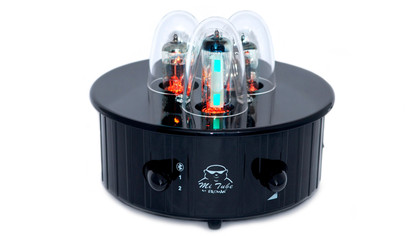The physics of why valve amps sound better
Especially when played loud

Sign up for breaking news, reviews, opinion, top tech deals, and more.
You are now subscribed
Your newsletter sign-up was successful
Many of the trappings of high-end audio equipment are more snake oil than scientific reality. For years, enthusiasts have insisted that valve amps sound better than solid state ones - but on this topic, there's real science to back that claim up.
"Although solid state diodes and transistors are cheaper, more practical, and technologically more advanced than glass valves," said David Keeports, a physics professor from Mills College in California, "valves survive because so many guitarists are exacting about their tone, and prefer the sound a valve amp gives them."
Keeports used a Bugera hybrid amplifier in his experiments, which contains both a valve preamp and a solid state power amp, to compare the different technologies. He ran a 200Hz sine wave through the amp, first turning up the gain with the master volume set low, and then vice versa.
Harmonic Results
After analysing the results in Logic Pro X, he found that the resulting sound waves delivered dramatically different harmonic results. "A moderately overdriven valve amp produces strong even harmonics, which add a sweetening complexity to a sound," he said. "An overdriven transistor amp, on the other hand creates strong odd harmonics, which can cause dissonance."
In addition, valve amps give musicians more options - thanks to the physics of how valves work. If you overdrive push a little, only the top of the sound wave is flattened. If you push it harder, however, it also flattens the bottom of the wave. "The shift toward odd harmonics at increasing gain is a characteristic of valve amplifiers that further explains their appeal," said Keeports.
"The even harmonics provides the complex, warm, rich sound that so many guitarists desire. Add to that a valve amp's ability to produce somewhat dissonant yet driving sounds when a guitarist attacks strings harder and turns rhythm playing into lead playing, and valve function creates just the harmonics a rock guitarist needs."
"Experienced guitarists don't just play their guitar – they also play the amplifier."
Sign up for breaking news, reviews, opinion, top tech deals, and more.
The full details of Keeports' testing were published in the journal Physics Education.
